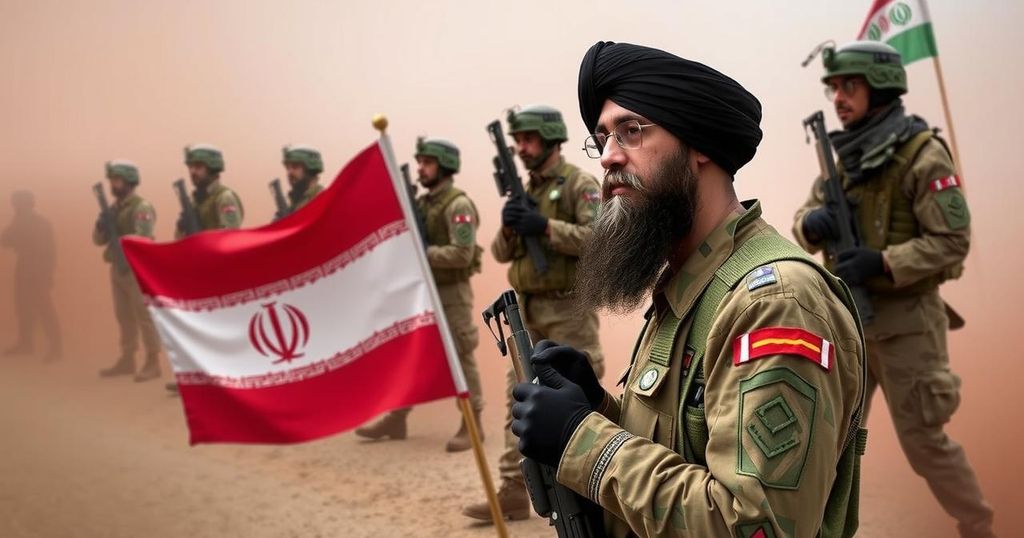The Iraqi PMU, led by Faleh Al-Fayyad, re-established their loyalty to Iran, emphasizing ties with Qassem Soleimani and Abu Madhi al-Muhandis. As Iranian-backed militias divert attention from Israel to Syria, new leadership dynamics in Syria are perceived to influence Iraq’s political landscape, particularly concerning Sunni representation and Kurdish unity.
The Iraqi Popular Mobilization Units (PMU), also known as Hashd al-Shaabi, reaffirmed their allegiance to Iran as articulated in a report by Iran’s state media outlet IRNA. Faleh Al-Fayyad, head of the PMU, publicly committed to the group’s loyalty to Iran during a gathering in Diyala province, held to commemorate the defeat of ISIS in the area in December 2014. Al-Fayyad emphasized the PMU’s enduring ties to their Iranian counterparts, particularly to the late Lieutenant General Qassem Soleimani, who was significant in the fight against ISIS before his assassination by a U.S. drone strike in January 2020.
Additionally, Al-Fayyad invoked the memory of Abu Madhi al-Muhandis, a prominent figure in the PMU who was also killed in the same attack as Soleimani. These declarations come amid a discernible shift in focus for Iranian-backed militias in Iraq, which are now more preoccupied with developments in Syria rather than expanding hostilities towards Israel. The recent meeting between the new Syrian leader Ahmed al-Sharaa and an Iraqi delegation, including Hamid al-Shatri of the Iraqi National Intelligence Service, underscored this shift.
In Iraq, Hadi al-Amiri, leader of the Badr Organization—which is a component of the PMU—asserted that they are not intimidated by the new Syrian leadership. However, he expressed concerns regarding potential influences that the changes in Syria could have on Iraq, advocating against the division of Syria. Furthermore, Sunni leaders within Iraq anticipate that the new power dynamics in Syria could bolster Sunni representation within Iraq. Northern Iraq’s Kurdistan region, notably aligned with the Kurdish KDP, is closely monitoring these developments, hoping they may pave the way for a collaborative government that includes all Kurdish factions.
The allegiance of the Iraqi Popular Mobilization Units (PMU) to Iran represents a continuity of Iranian influence within Iraqi politics and military operations. Since the emergence of the PMU in response to the rise of ISIS in 2014, these groups have often aligned themselves with Iran’s strategic interests in the region, highlighting complex relationships around shared adversaries and mutual goals in combatting terrorism. The resignation of Iranian forces, particularly through leaders like Qassem Soleimani, has underscored the intricate network of cooperation between Iraqi militias and Tehran. Current geopolitical shifts in Syria further impact these relationships, as they redraw the boundaries of influence among regional factions and nations.
The reaffirmation of allegiance by the PMU to Iran reflects the persistent influence of Iranian policy in Iraq, particularly amidst new developments in Syria. As Iraqi militias adjust their focus away from Israel toward Syria, the regional ramifications of this shift are significant. The evolving power dynamics within both Iraq and Syria will likely shape the future interactions between various factions, echoing the complex interdependencies established in the region’s recent history. Understanding these relationships will be crucial for comprehending the broader implications for stability and governance in Iraq and its neighboring countries.
Original Source: www.jpost.com






